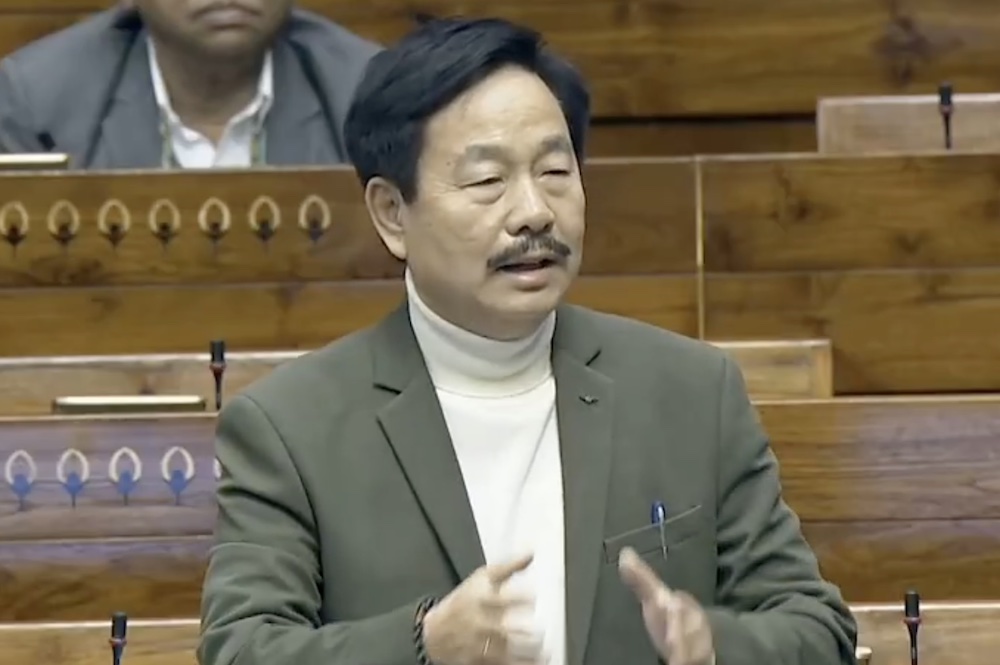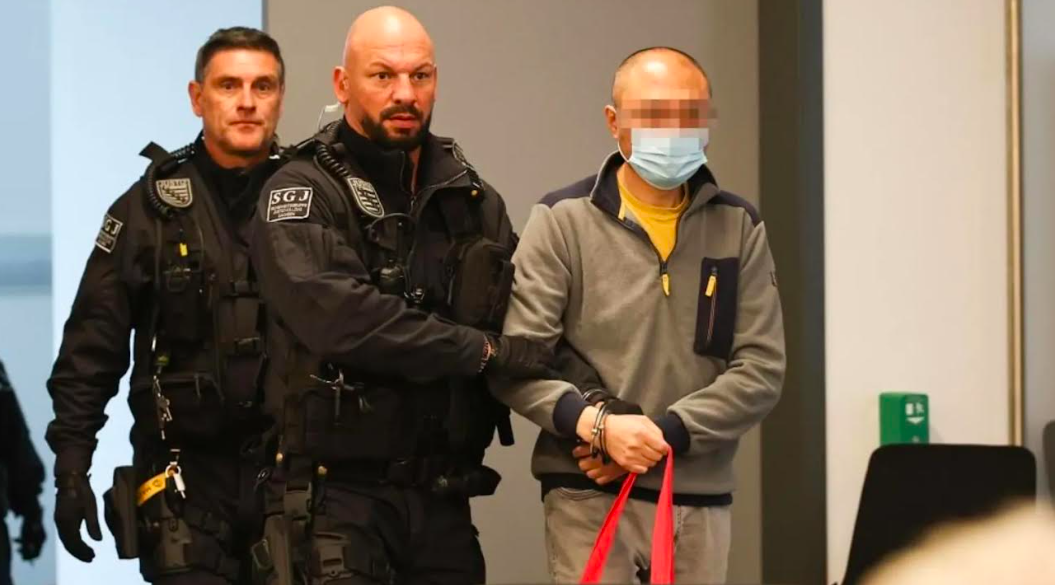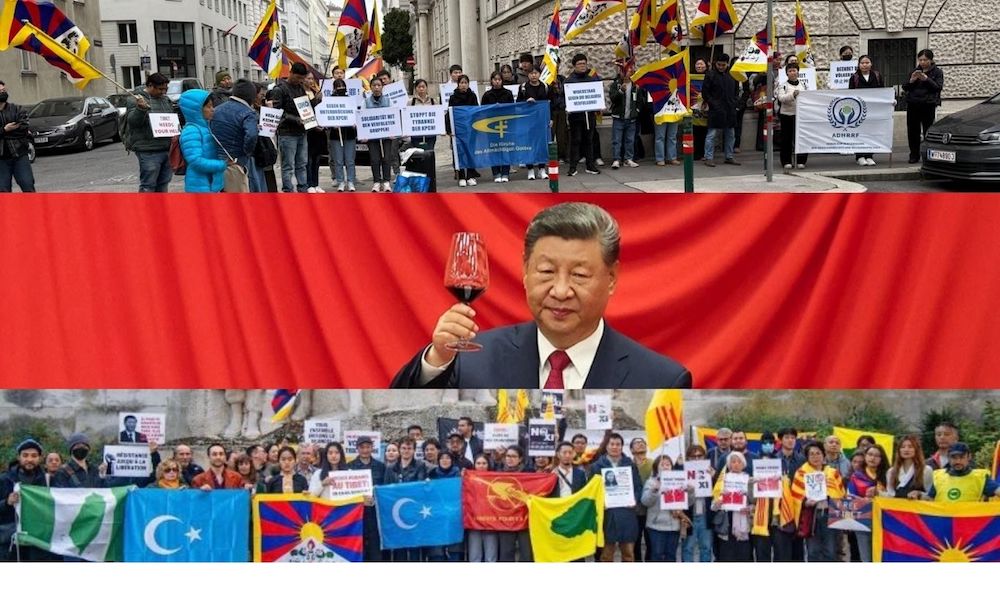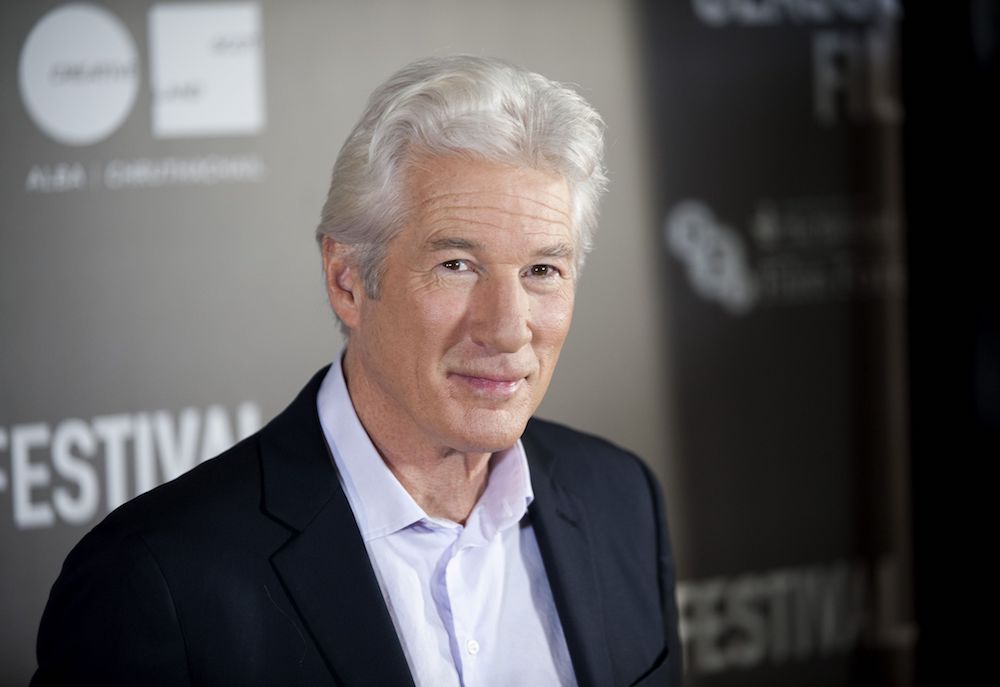Tsering Dhundup
DHARAMSHALA, Dec 17: Tapir Gao, Member of Parliament (MP) from Arunachal Pradesh, called on the Indian government to formally recognise the institution of His Holiness the Dalai Lama and raised concerns over China’s interference in the reincarnation of the next Dalai Lama during the winter session of Parliament (Lok Sabha) on Monday.
Tapir Gao, who is also the co-convener of the All Party Indian Parliamentary Forum for Tibet (APIPFT), during his address to the parliament urged the Indian government to take a decisive stance against China’s interference in Tibetan Buddhist reincarnation processes. He highlighted the importance of ensuring the rightful recognition of the Dalai Lama’s successor to safeguard Tibet’s religious and cultural integrity.
Gao also proposed that the Indian government confer the Bharat Ratna, India’s highest civilian honour, upon the 14th Dalai Lama, and said that this recognition would honour the Dalai Lama’s contributions to peace, spirituality, and the preservation of Tibetan culture. He also appealed to the international community to extend support for the rightful Dalai Lama and called for global solidarity on the matter.
On his social media account, Tapir Gao reiterated his speech from Parliament. He wrote, “During Zero Hour today in Parliament, I urged the government to recognise the Dalai Lama Institution, as the Chinese government’s decision in 1959 to appoint the XVth Dalai Lama poses a grave threat not only to Buddhism but also to the Tibetan people and the future of Tibet. India & the world must act decisively to recognise the rightful successor, safeguarding both religious & cultural integrity & ensuring global support for the cause. I also called for conferring the highest civilian honour, Bharat Ratna, upon His Holiness the XIVth Dalai Lama. In recognition of his unwavering dedication to peace, compassion, humanity, and universal brotherhood. This long-pending demand reflects the collective sentiment of the people, as His Holiness remains a true Messiah of Peace and a beacon of hope for the world.”
Gao’s remarks come amid ongoing efforts by the Chinese Communist government to assert claims over the reincarnation authority of living Buddhas, including and especially the Dalai Lama who is considered the foremost religious leader in Tibetan Buddhism.
The octogenarian spiritual leader of Tibet, during a religious conference in 2011, issued a statement addressing the reincarnation issue. He emphasised that reincarnation occurs through voluntary choice or the strength of karma, merit, and prayers. The Dalai Lama stated that the individual who reincarnates holds the sole legitimate authority to determine the place and process of their rebirth.
He added, “It is particularly inappropriate for Chinese communists, who explicitly reject even the idea of past and future lives, let alone the concept of reincarnate Tulkus, to meddle in the system of reincarnation and especially the reincarnations of the Dalai Lamas and Panchen Lamas. Such brazen meddling contradicts their own political ideology and reveals their double standards. Should this situation continue in the future, it will be impossible for Tibetans and those who follow the Tibetan Buddhist tradition to acknowledge or accept it.”
The Dalai Lama stated that when he is 90 years of age, he will consult senior Tibetan Buddhist leaders, the Tibetan public, and followers of Tibetan Buddhism to decide whether the institution of the Dalai Lama should continue. If the institution is to continue, the responsibility of identifying the successor will rest with the Dalai Lama’s institution, which will follow traditional methods in consultation with Tibetan Buddhist leaders and reliable Dharma Protectors. He asserted that no recognition should be given to candidates selected for political purposes, including by the People’s Republic of China.










